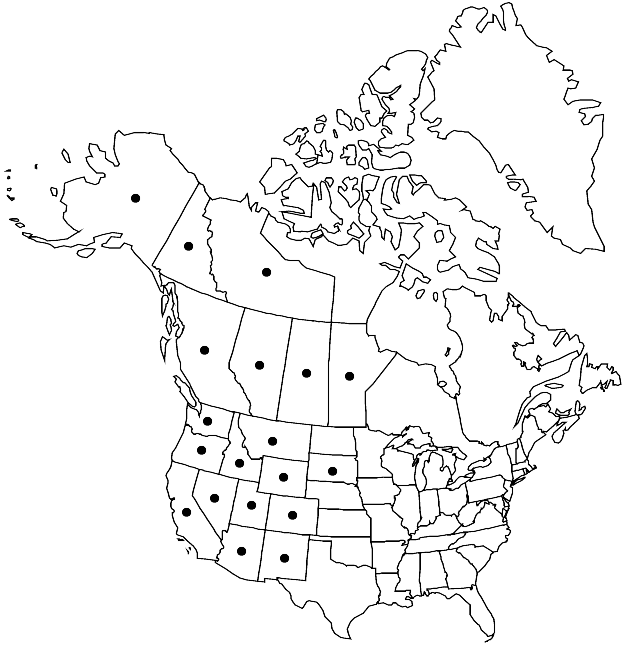Salix lasiandra
Pl. Hartw., 335. 1857.
Shrubs or trees, 1–9(–11) m. Stems: branches flexible to highly brittle at base, yellow-brown, gray-brown, or red-brown, slightly to highly glossy, glabrous or pilose to glabrescent; branchlets yellow-brown, gray-brown, or red-brown, glabrous, pilose, villous, or velvety, hairs spreading, straight, wavy, or crinkled, (inner membranaceous bud-scale layer free and separating from outer layer). Leaves: stipules usually foliaceous, apex convex or rounded; petiole deeply grooved adaxially, (1–)4–30 mm, with pairs or clusters of spherical or foliaceous glands distally, glabrous or pilose adaxially; largest medial blade hypostomatous, hemiamphistomatous, or amphistomatous, narrowly oblong, very narrowly to narrowly elliptic, narrowly lanceolate to lanceolate, or oblanceolate, 53–170 × 9–31 mm, 3.1–9.8 times as long as wide, base convex or rounded, margins flat, serrulate, apex caudate to acuminate, abaxial surface glaucous or not, glabrescent or pilose, hairs white, sometimes also ferruginous, straight, wavy, or curved, adaxial slightly or highly glossy, glabrous, pilose, or long-silky, hairs white and ferruginous; proximal blade margins entire and glandular-dotted or shallowly serrulate; juvenile blade reddish or yellowish green, moderately to very densely villous, long-silky, or glabrous abaxially, hairs white and ferruginous. Catkins (fruiting in summer, persistent); staminate 21–78 × 8–15 mm, flowering branchlet 3–27 mm; pistillate moderately to very densely flowered, slender, stout, or subglobose, 18.5–103 × 6–17 mm, flowering branchlet 6–56 mm; floral bract 1.7–4 mm, apex rounded, entire, toothed, or erose, abaxially hairy throughout or proximally, hairs wavy. Staminate flowers: abaxial nectary (usually present), (0–)0.4–0.8 mm, adaxial nectary square or ovate, 0.2–0.6 mm, nectaries distinct or connate and shallowly cup-shaped; stamens 3–6; filaments distinct, hairy on proximal 1/2 or basally; anthers ellipsoid, shortly cylindrical, obovoid, or globose, 0.6–1 mm. Pistillate flowers: adaxial nectary square or ovate, 0.2–0.6 mm, shorter than stipe; stipe 0.8–4 mm; ovary pyriform, beak slightly bulged below or gradually tapering to styles; ovules 16–30 per ovary; styles connate, 0.2–0.8 mm; stigmas broadly cylindrical or 2 plump lobes, 0.2–0.4 mm. Capsules 4–11 mm.
Distribution

Alta., B.C., Man., N.W.T., Sask., Yukon, Alaska, Ariz., Calif., Colo., Idaho, Mont., N.Mex., Nev., Oreg., S.Dak., Utah, Wash., Wyo.
Discussion
Varieties 2 (2 in the flora).
Varieties of Salix lasiandra at the south end of Kootenay Lake, British Columbia, are sympatric. In that area, they differ not only in the usual characteristics, leaf glaucescence and presence of stomata in adaxial epidermis, but plants of var. lasiandra are heavily infested with sawfly galls, whereas var. caudata are not, and leaves of var. lasiandra are stiffer than those of var. caudata.
Selected References
None.
Key
| 1 | Largest medial blades hypostomatous or hemiamphistomatous (rarely amphistomatous), surfaces usually glaucous abaxially (rarely not glaucous), bases convex to rounded; staminate flowers: nectaries distinct; petioles with clusters of spherical or foliaceous glands distally. | Salix lasiandra var. lasiandra |
| 1 | Largest medial blades amphistomatous, surfaces not glaucous abaxially, bases convex; staminate flowers: nectaries usually distinct, sometimes connate and shallowly cup-shaped; petioles with pairs or clusters of spherical glands distally. | Salix lasiandra var. caudata |